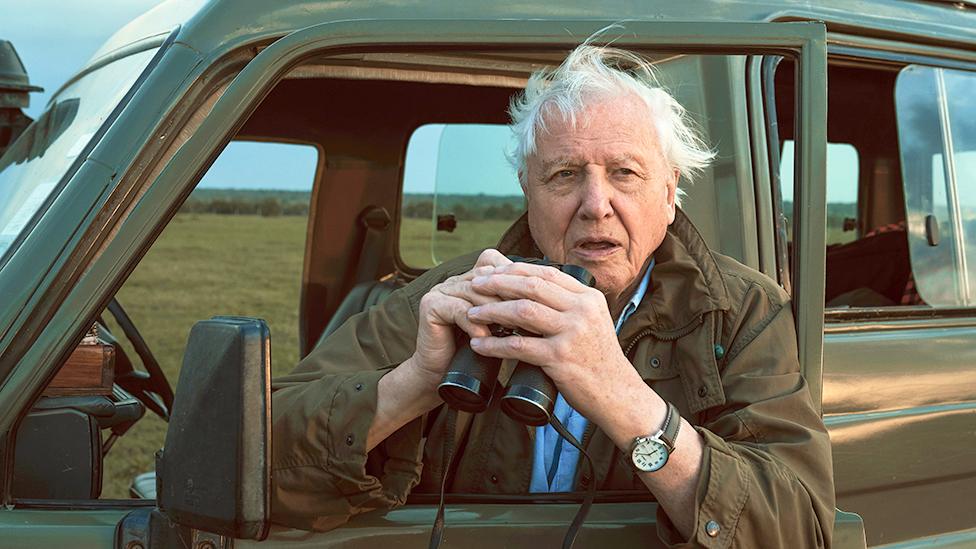Green Christmas: How to have a sustainable festive season
- Published
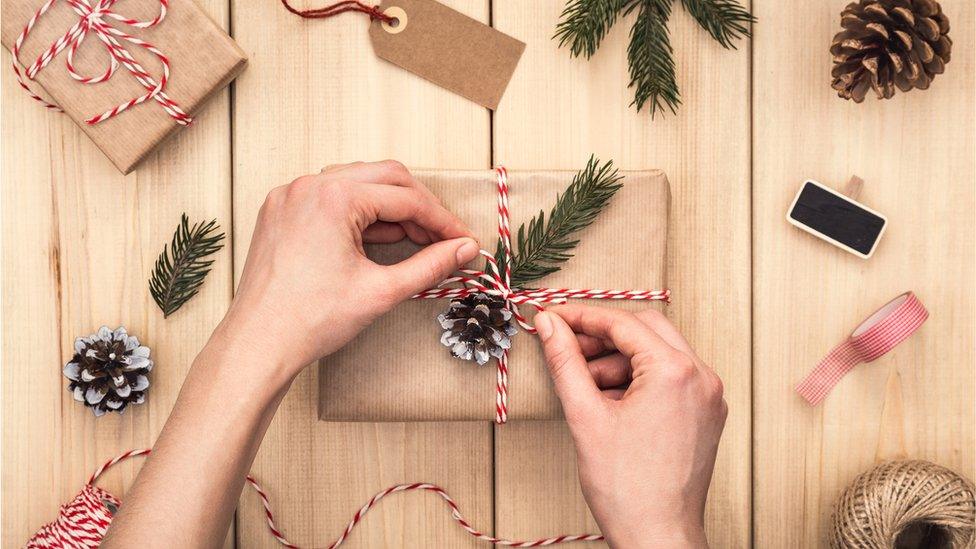
The carpet is littered with paper and hoards of single-use plastic toys, many of which will have outlived their charm by the New Year.
It's the scene in many homes on Christmas morning.
Christmas may be a time of giving but does that giving come at a cost?
It seems personal efforts to reduce waste have never been greater with more of us switching to sustainable options like reusable bottles, beeswax food wraps and metal straws.
Many people are using bags-for-life in reaction to the carrier bag tax.
But while awareness of environmental issues may be at an all-time high, the steady transformation of UK and Irish shoppers into sharing the consumer habits of the US shows no sign of slowing down.
Black Friday this year saw UK shoppers spend more than ever - estimates by Barclaycard show an increase in spending of 16.5% on last year.
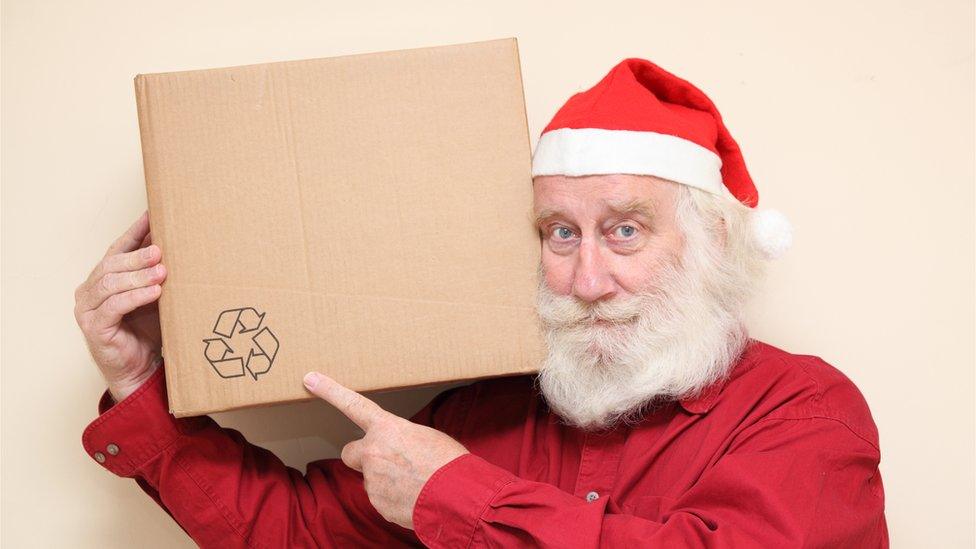
Households in Northern Ireland last year threw away 231 tonnes of waste across the festive season, more than any other time of the year, according to Keep Northern Ireland Beautiful.
The season of goodwill comes with a hefty side of added waste.
The organisation's Live Here Love Here manager, Jodie McAneaney, says despite the figures, she feels more people are trying to be sustainable in their everyday lives.
"We started off calling it the David Attenborough effect but now even with people like Greta Thunberg - particularly this year there is more significant awareness of climate issues.
"With our clean coast programme, we've seen more than double the number of volunteers compared to last year."
How will she be making her Christmas more sustainable?
"There are small little differences we can all make," she says.
"I've significantly reduced the amount of items I would buy, especially clothes.
"The main thing to becoming more sustainable at Christmas is changing our outlook," she adds.
"I am a big believe in experiences. We need to move away from buying stuff and go back to spending time with and creating experiences with people."
The organisation runs a scheme where people adopt an area to look after and can clean it up with friends and family.
"That means they are spending time together and do something good for the environment," says Ms McAneaney.
She says it is important to "stop and think" before you buy.
"If you can do without it, do without it. Try to make the most of the items you have and make them last if you can.
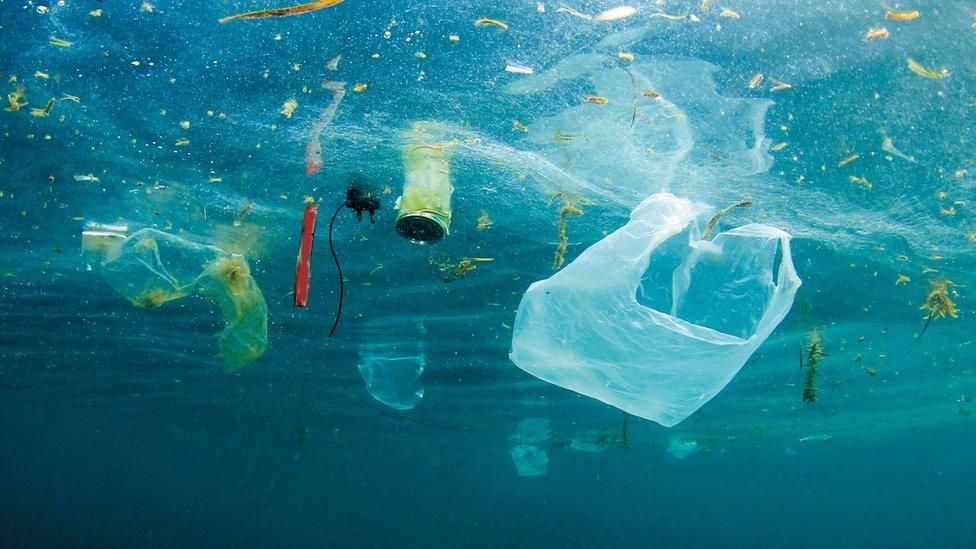
"There are always more environmentally friendly options available if you have to buy something," she adds
However, it can be easy to suggest ruling out buying single-use plastics, but for many busy families on a budget these items represent an easier and cheaper option.
"Sometimes more environmentally friendly alternatives can be more expensive but the more demand there is for them the cheaper they will become over time," says McAneaney.
Top tips from Keep Northern Ireland Beautiful for having a more eco-friendly Christmas:
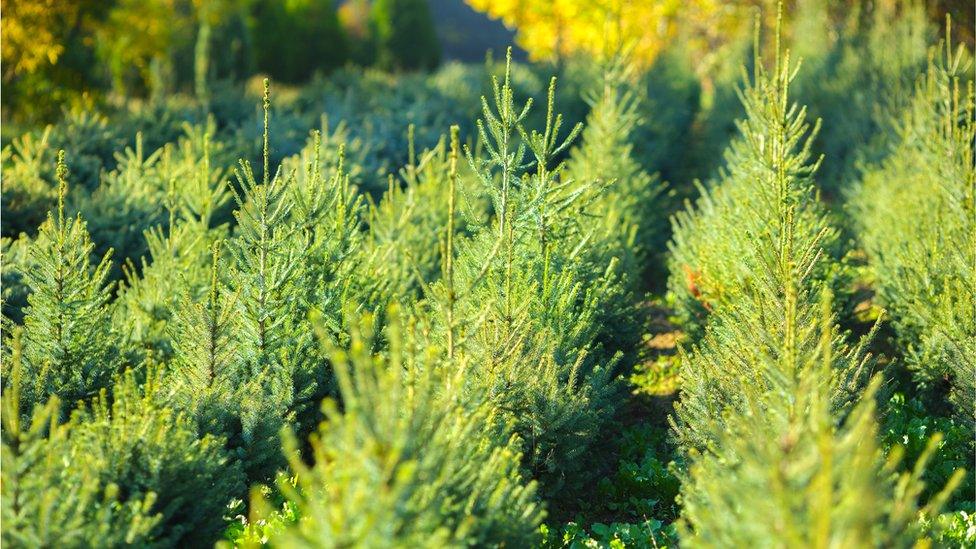
Some 1.5bn Christmas cards are thrown away each year in the UK. Send e-cards instead or make a DIY card from material you already have for close friends and family (avoiding glitter)
With gift wrapping make sure to reuse last year's gift bags and left-over paper before buying more
Reusing an existing artificial tree is better than buying a new real tree each year
Make handcrafted decorations - classic styles that will last a lifetime and are fun to create with the kids. Edible decorations can make things more interesting and are easily disposed of
If you're searching for the perfect party outfit try buy-and-sell clothing apps or visit a local charity or vintage shop plus all major retailers now stock sustainable clothing lines
Food - try to plan ahead as best as possible to minimise waste and visit local fruit and vegetable or farm shops for package free goods
Use LED Christmas lights with timers to save energy
Gift buying can be one of the most stressful parts of Christmas but there are plenty of options - check if items are environmentally friendly by searching for established logos such as Fairtrade and Rainforest Alliance
A "Secret Santa" scheme for gift-giving is always a good option to keep the number of presents down, or use Secret Santa to re-gift especially for young children
Consider buying your presents from a charity shop, meaning new resources don't have to be exploited and you have the added benefit of the money being donated to a good cause
Try organic and recyclable clothing and beauty products, solid soap ranges, bamboo products as well as pledging money to charity or using vouchers for experiences to enjoy together
- Published19 November 2019
